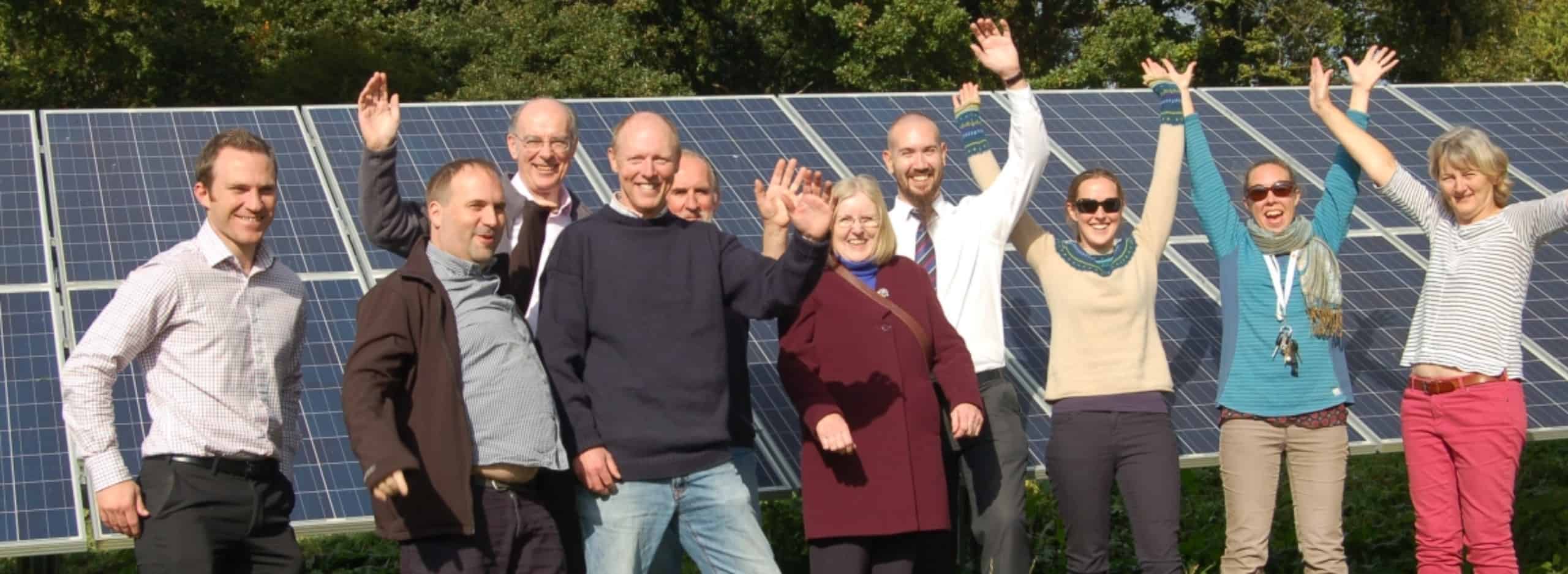The climate emergency is no longer an issue solely for the concern of environmental or sustainability focused Trusts and Foundations, it’s a matter of urgency for every part of society and for all funding organisations. The Covid-19 crisis has only emphasised this – a recent study compared the climate crisis to Covid-19, describing them as similar but the former in ‘slow motion and much graver.’
In looking forward beyond the Covid-19 crisis, it’s quite right that the climate emergency is demanding our attention and challenging us to think of ways to ensure our work is doing all it can to contribute to the task of reaching net-zero carbon as fast as possible. It’s also a time to reflect and learn from those Trusts and Foundations who have been supporting pioneering work to help communities play their part in creating a low-carbon future.
Community energy fundamentally changes the relationship between people and energy so that communities own, control and benefit from energy projects in their locality. These projects can include renewable energy and heat generation, energy efficiency measures, and pioneering energy storage and demand management initiatives. The potential for community energy to contribute to a vast array of environmental, social and economic charitable objectives is huge. It’s this potential which first inspired the Foundation to support community energy projects, and why we continue to do so. Many community energy organisations have re-emphasised their worth during the Covid-19 crisis. For instance, under lockdown Ferry Farm Community Solar in West Sussex set aside a £40,000 fund to help a local food bank, vulnerable households and children who needed laptops to study at home. This form of speedy mutual aid and local resilience will be crucial in the years ahead.
We seek to use all of our capital in pursuit of our objectives, which we have been utilising to accelerate the transition to a decarbonised, decentralised and democratised energy system with community energy at its heart. This programmeme of considerable support has included grants to ground-breaking national and local groups, investments in community projects, and engagement with energy utilities, other investors, and policy makers.
The Foundation has provided grants to support truly innovative individual projects like Riding Sunbeams, a world leading social enterprise company that’s connecting community-owned solar panels directly to electrified rail routes to power trains. Direct supply of solar power to rail traction systems has never been done before. But it has huge potential to reduce costs and clean up the energy used by metros, trams and railways in the UK and around the world. After extensive feasibility work and research, Riding Sunbeams connected the first pilot solar array to the railway at their demonstrator site outside Aldershot station in 2019. The next phase of the project will go bigger, offering shares in new solar farms to communities and commuters, so that local people will own and benefit from the clean energy powering their trains.
We have also made social investments in community energy projects, including purchasing community shares in the inspiring Awel wind co-op near Swansea, a two-turbine project that is expected to generate £3 million over its lifetime for a local fuel poverty charity.
The beauty of these projects is that they are taking often technologically advanced solutions into neighbourhoods and showing how engaging with innovation can help generate cleaner, greener energy. At the same time, when surplus energy is sold back to the grid, there’s a payback to that same community in the form of a local fund. To date, communities are using this money to address local fuel poverty, purchase other community assets, provide youth employment training, pay for community facilities, fill gaps in public services resulting from local government budget cuts, and much more – it can be anything, the community is empowered to address its own needs and priorities.
The Foundation has also supported Forum for The Future to develop an online matchmaking service, Power Paired, for community energy groups and the owners of sites with renewable energy potential; encouraging any asset owners from individuals to local authorities and private businesses or Trusts and Foundations, to register their buildings or land that could host a community energy project.
We’ve also awarded a grant to Repowering, a London based group, for the first community anaerobic-digestion plant, and to Bath & West Community Energy for a neighbourhood energy storage and demand management pilot scheme.
The Foundation also uses its investor power and is engaging every UK energy utility company as a shareholder in support of the 3D energy transition and has challenged their lobbying activity; and engaged government for a fair policy environment.
The Foundation has learnt that this integrated approach works. We’ve been able to engage huge utilities companies and energy networks to work collaboratively on innovative projects with community groups, and at the same time build more resilient business models. Thanks to our own experiences, we’ve been able to contribute to academic reports like the London School of Economics Grantham Research Institute for investor guidance to support a just transition, including recommendations for capital allocation into community energy shares and bonds; putting this investment class firmly on the mainstream investment agenda.
We will continue to support community energy. There are concerns over government policy and subsidy reductions in the sector, but we see that as more reason to engage. Your foundation can join us in helping to progress community energy. There is potential for match funding via grant giving, shared social investment opportunities, and we would welcome approaches on collaborative engagement of the utility sector and government. Trusts and foundations should seize this opportunity to support the sector at this exciting and critical time.








